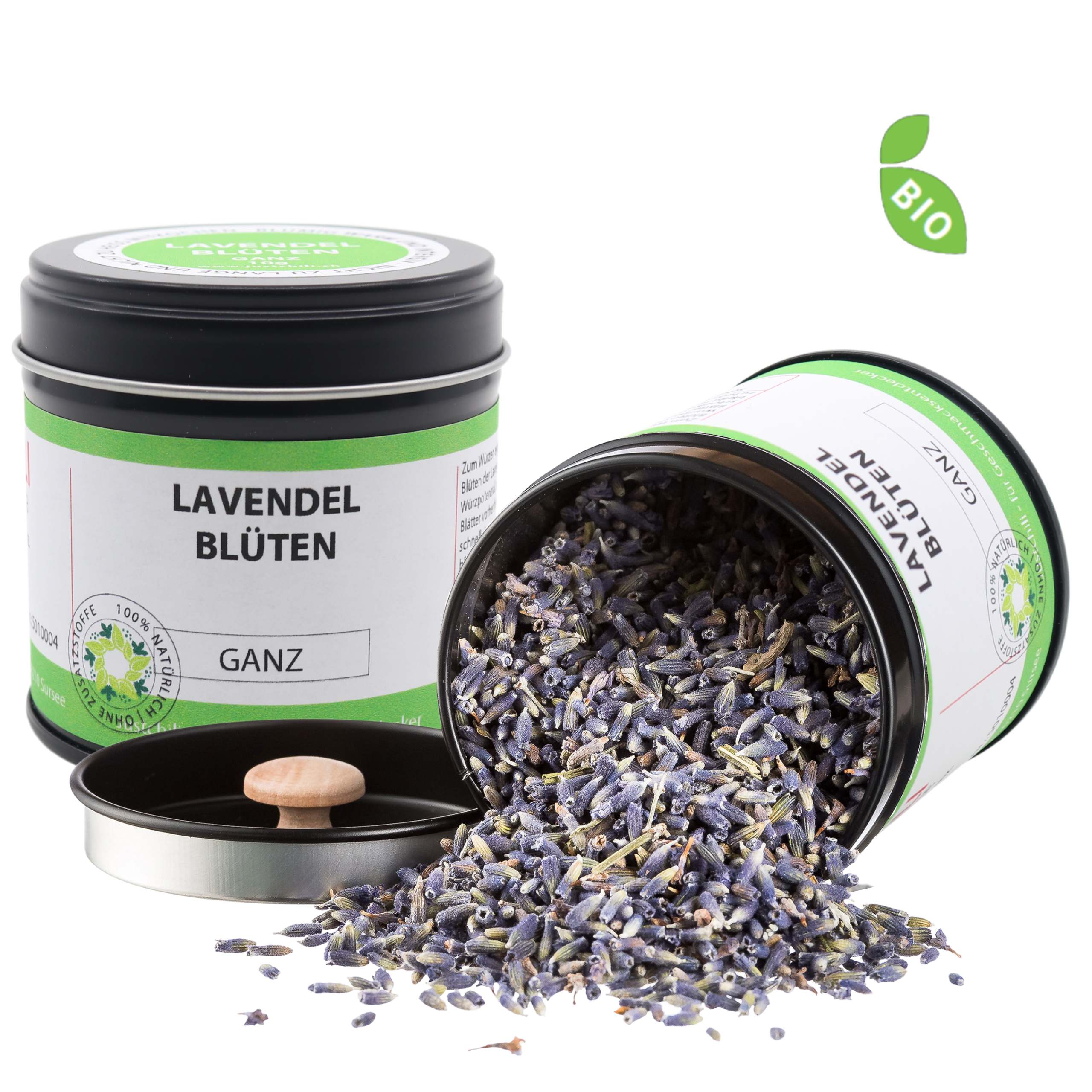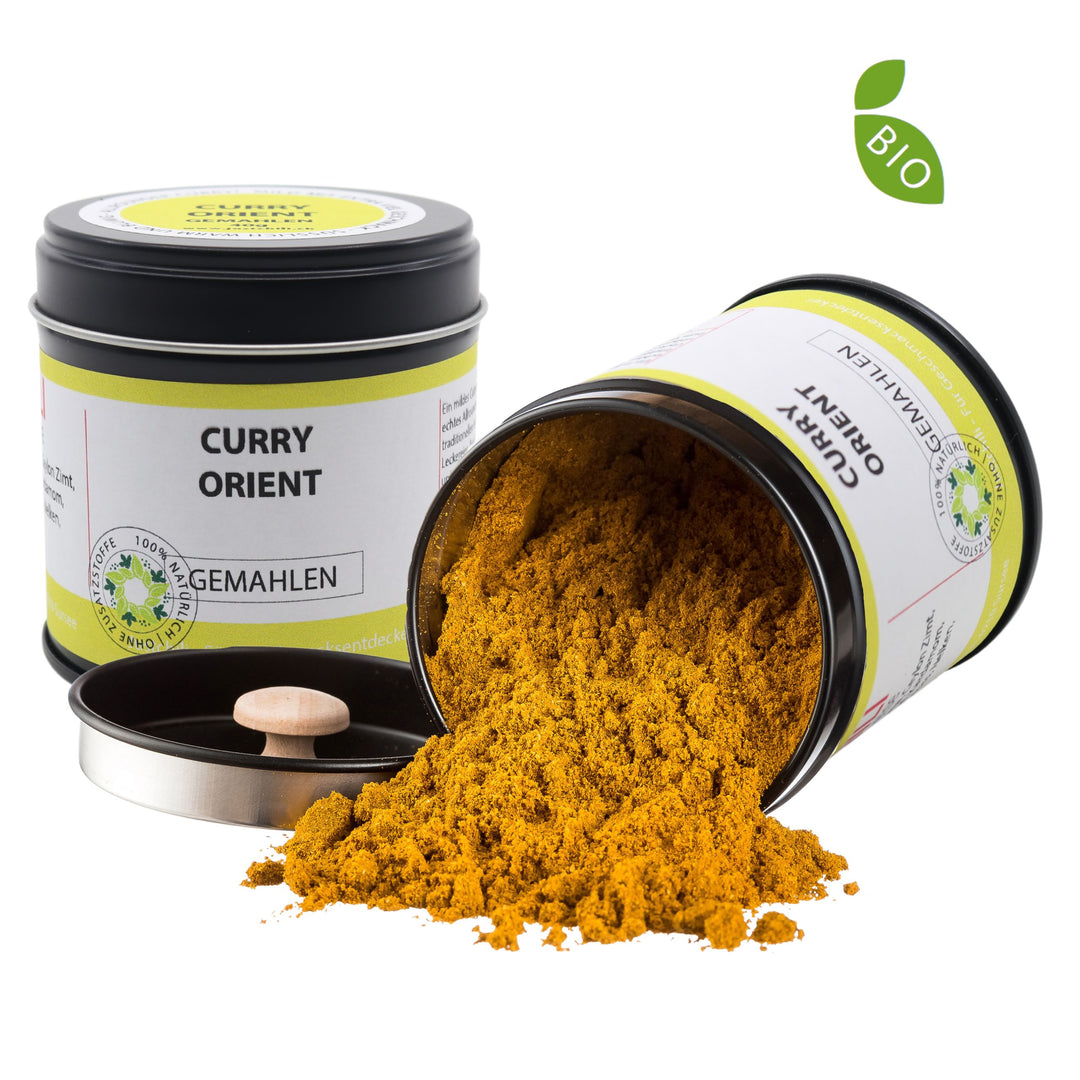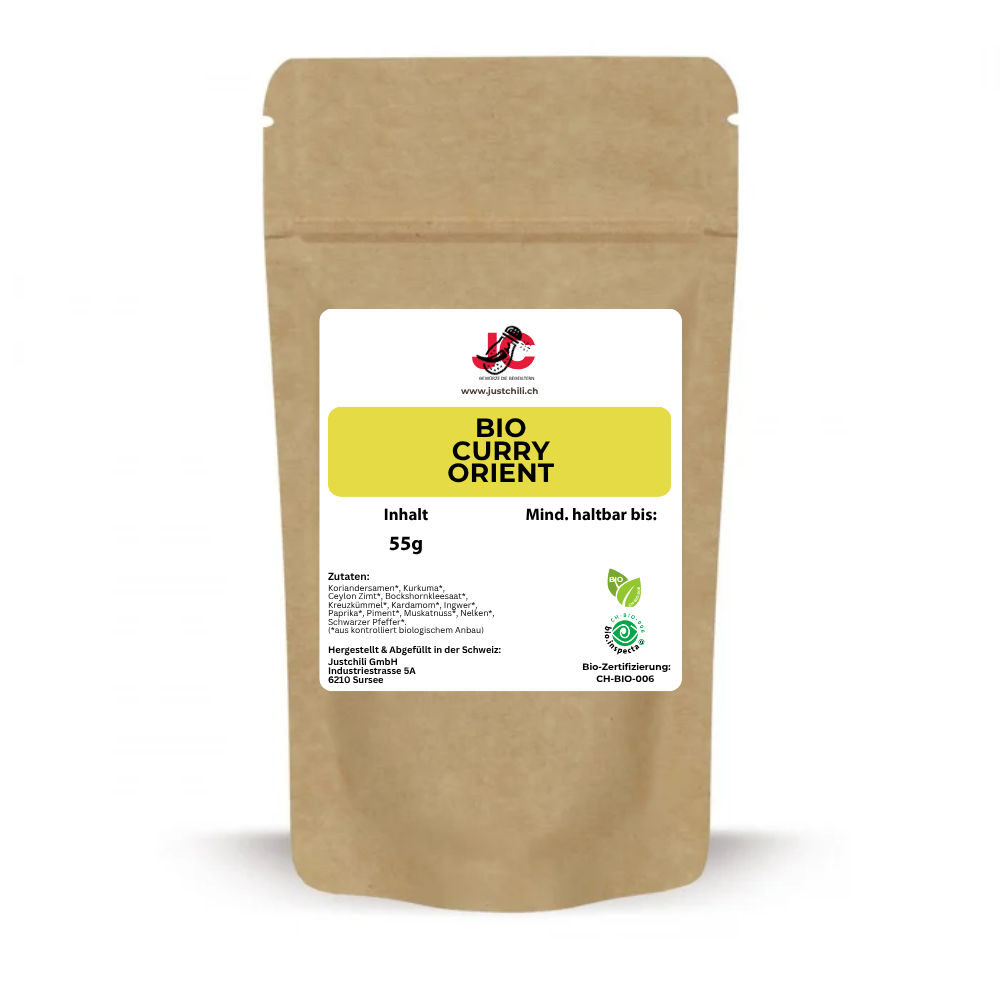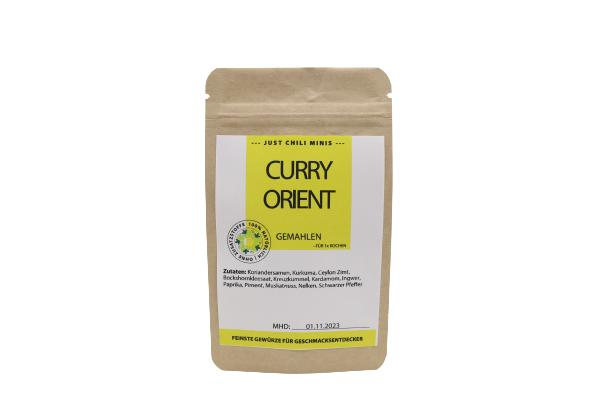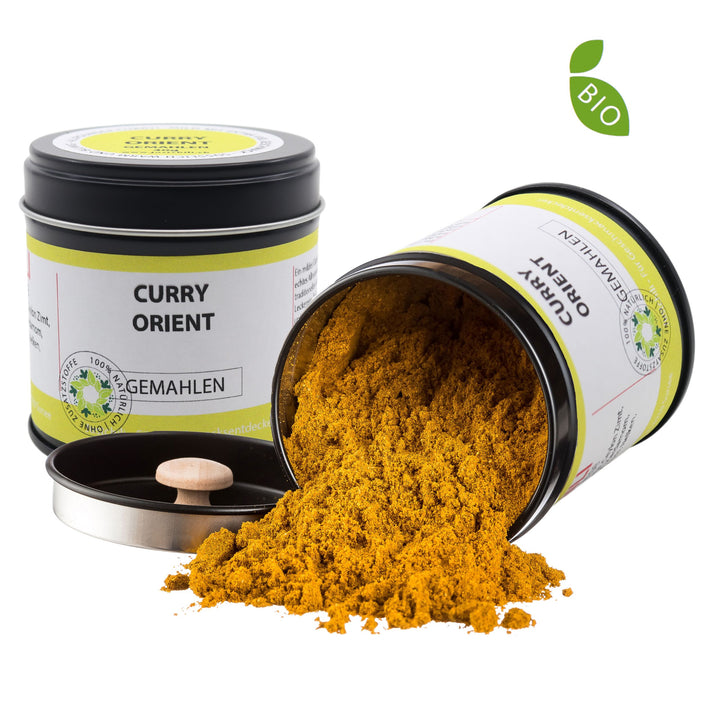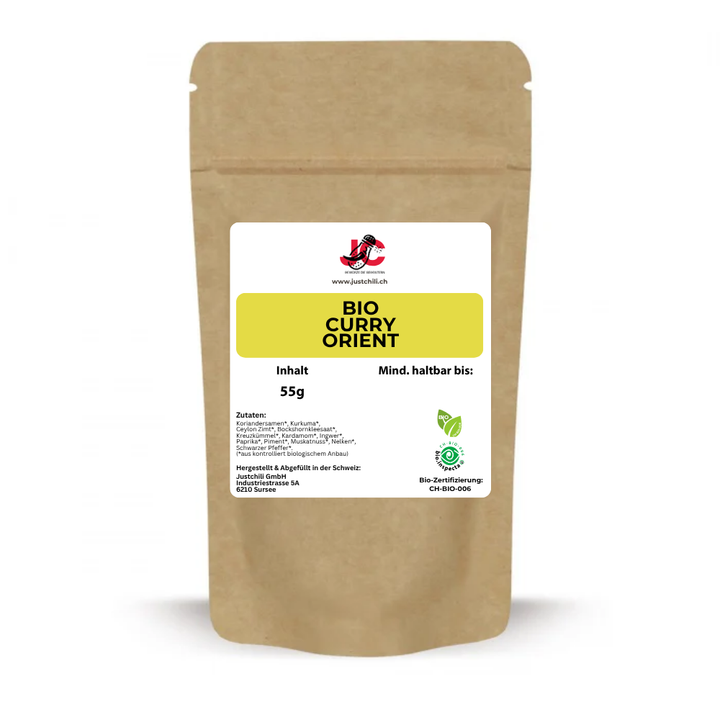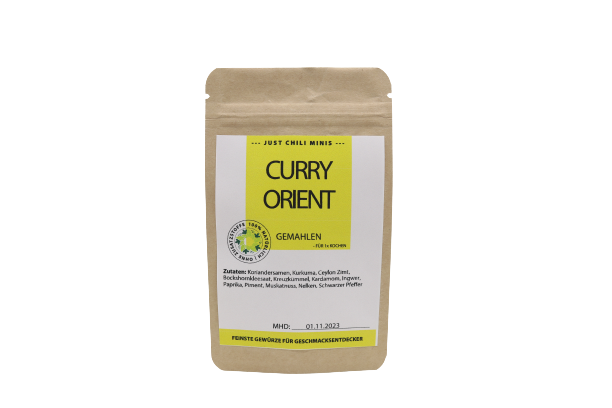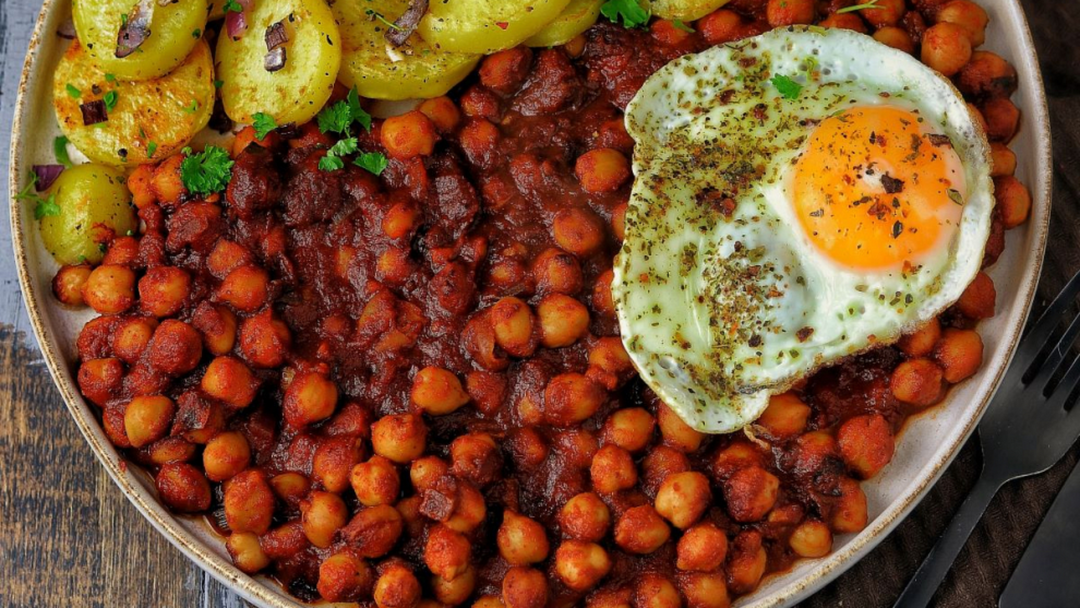

Bei Justchili stehen wir für höchste Qualität und natürliche Reinheit. Unsere Gewürze und Mischungen werden in der Schweiz mit grösster Sorgfalt abgefüllt, frei von künstlichen Zusätzen oder Rieselhilfen. Jedes Produkt entsteht in kleinen Chargen, um maximale Frische und unverfälschten Geschmack zu garantieren. Entdecke mit Justchili den Unterschied, den echtes Handwerk und beste Zutaten machen können.

From colorful bazaars to the opulent dining rooms of the rich sheikhs: with the Curry Orient we invite you on a journey into 1001 nights. Because that's exactly where good curry has been one of the indispensable ingredients of oriental cuisine for many centuries.
AROMA AND USE
Currys are incredibly diverse and, depending on the country of origin, regional spice favorites characterize the golden-yellow mixture. The sweet notes of cinnamon and cardamom play a key role in our Curry Orient. In addition, the characteristic taste of cumin ensures a harmonious combination with classic ingredients from oriental cuisine. Legumes are particularly suitable as a typical base for curry braised dishes. These are often eaten vegetarian - combined with various vegetables. For the no less popular meat dishes, we recommend lamb or poultry, which are particularly valued in the local cuisine.
WHICH DISHES DO CURRY GO BEST WITH?
You can use the Oriental Curry for both traditional Indian and particularly oriental delicacies. In our favorite recipe for Indian butter chicken, the most delicious influences from both cultures come together, making the Curry Orient with its binational origin the perfect flavor carrier for this delicious dish.
Aside from Indian cuisine, we also like to use Oriental Curry for couscous dishes, Moroccan stews or to refine hummus. In recent years, this vegan chickpea puree has developed from exotic to the favorite dip at barbecues, for dinner or as a small snack in between.
WHERE DOES CURRY ORIGINALLY COME FROM?
If you search for the origins of curry, you will inevitably end up in India. The versatile spice mixtures were mixed there centuries ago by experienced spice traders from up to 30 individual spices. In order to maintain the authentic flavors that have been protected and valued for centuries, we follow this example: In our position as modern spice traders, we also source the individual spices from their original growing areas and only create our own mixtures in our spice factory according to a unique recipe.
THE EXCITING HISTORY OF CURRY
World history owes some of its greatest events to the tempting spices of the then great empire of China, to which India also belonged. In the 13th century, for example, Marco Polo was looking for new trade routes for his business. And Columbus actually only discovered a new continent with his fleet by chance. His mission was to find a sea route to transport Indian spices such as curry to Europe without having to cross the Ottoman Empire. Because there they levied horrendous tariffs on the valuable spices of the Asian world.
These trips already show how culinary influences and the love for certain spices can exchange and - as in the case of the Curry Orient - mix between the individual regions of the world. The exotic flavors ultimately came to Europe through the British. They got to know and love the flavor intensity of Indian cuisine during the colonial period and wanted to enjoy the delicious curry mixtures at home too.
ARE ALL CURRYS SPICY?
The levels of spiciness of our curries vary greatly. The Oriental Curry is one of the mild versions and only contains allspice and black pepper as hot components instead of chili. It can also be safely used in cooking for European palates that are not used to the spiciness of Asian foods. If you would rather try a spicy mixture, we recommend our Dragon Curry. It is the hottest curry in our range and thanks to the fiery taste, this powder says it all!
CAN YOU TASTE THE DIFFERENCE BETWEEN ORIENT CURRY AND THE “NORMAL CURRY”?
This question is easy to answer: Absolutely! As the history of curry has already shown you, there is no such thing as a “normal curry”. They all have their own flavor. The Curry Orient differs from the related spice mixtures in its low spiciness and a few special ingredients: with real Ceylon cinnamon, cardamom and cumin, the oriental curry gets its warm aromas and takes your senses into the fairytale world of 1001 Nights.
Ingredients: Coriander seeds, turmeric, Ceylon cinnamon, fenugreek seeds, cumin, cardamom, ginger, paprika, allspice, nutmeg, cloves, black pepper
Feine Rezepte für Dich
View all
Zutaten Organic curry oriental spice mix





